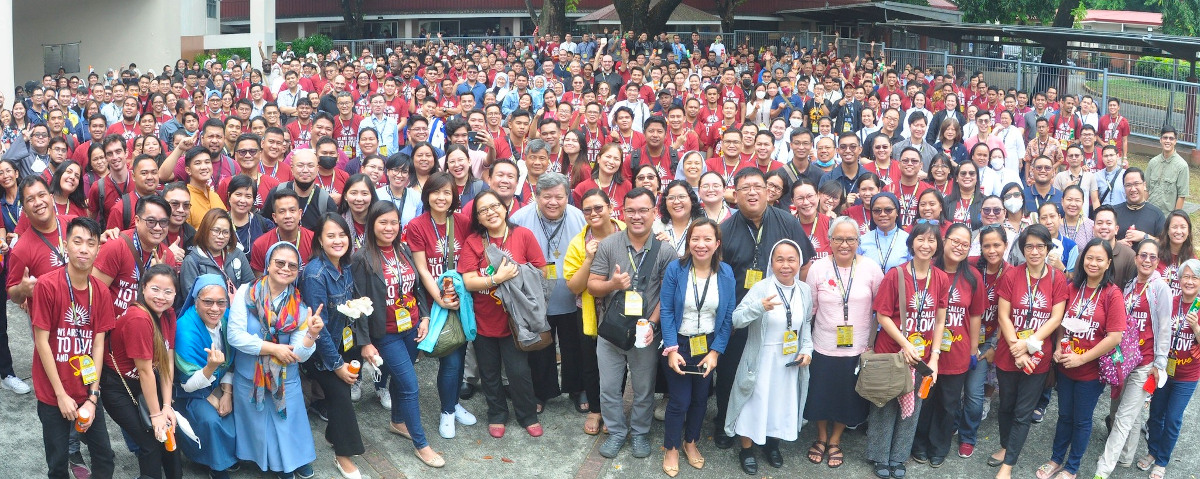
I was fortunate to have been a delegate at the first-ever International Conference on Youth Ministry (ICYM 2023), which was a collaboration between the Loyola School of Theology and the Don Bosco School of Theology in Manila. The two schools operate under different religious orders, the Jesuits and the Salesians, both of which have a strong tradition of ministering to young people through education.
The three-day conference held on Easter Week from 13 to 15 April at the Ateneo de Manila University was a melting pot of cultures and ideas on how to accompany young people to the Lord and help them discern who they are meant to become. From lively keynote speakers and amazing cultural performances to unstructured interactions with other participants, the ICYM was filled with vibrancy and freshness.
The accompaniment of young people is something that is close to my vocation as a formator in the senior high school. I teach Grade 12 students who are in the middle of transitioning from basic education to tertiary education — from adolescence to young adulthood. In teaching and being with my students, I always try to be guided by Ignatian Spirituality and the Universal Apostolic Preferences (UAPs) of the Society of Jesus, with which discernment is a key factor in journeying with young people.
Fr General Arturo Sosa SJ, in his letter on the UAPs, affirms that: “Accompanying young people puts us on the path of conversion; it requires a new way of living in community, a way that is more coherent, more personal, more open, more evangelical.” Indeed, the keynote lectures and workshops drove home this point. The conference was a wakeup call to the reality that the youth are the protagonists in our efforts in youth ministry and youth evangelisation. The focus of ministering to young people should not be on how we execute our programmes, but on being available to help them make sense of their faith. We can never be successful in these tasks if not for our openness and flexibility to the needs of the youth.
Our world today demands that we understand the milieu and context of young people, particularly their use of media and technology. With the onset of modernity and the Covid-19 pandemic, technology has become an integral part of our culture, shaping the identity and principles of young people. The online world offers easy access to different views, news, trends, and harmful content, all of which can significantly influence the discernment and feelings of young people. As youth ministers, our challenge is to be familiar with the online world and use it to create a religious third space. How can media and technology help the youth meet God and reach out to their own communities? Our answer to this question relies heavily on one truth: we must be more creative in our approach to bringing Jesus to the youth and helping them discover their true vocation. Openness, creativity, and accompaniment are all necessary components to become a synodal and listening Church.
Ultimately, we can only show young people the way to God, empower them to walk with the excluded, and care for our common home if we truly operate in the spirit of synodality. The question we must ask ourselves is: Have we truly become synodal in our journey with the youth? How much further do we need to go and how deeply must we immerse ourselves in the context of young people, with their needs, desires, and aspirations? Only then can we accompany them towards the realisation of their true vocation, both as individuals and as members of God’s people.
 Patrick De Villa is a Christian Life Education teacher for Grade 12 students at Ateneo de Manila University Senior High School. He also works as a social media manager and content creator for the Jesuit Conference of Asia Pacific.
Patrick De Villa is a Christian Life Education teacher for Grade 12 students at Ateneo de Manila University Senior High School. He also works as a social media manager and content creator for the Jesuit Conference of Asia Pacific.
